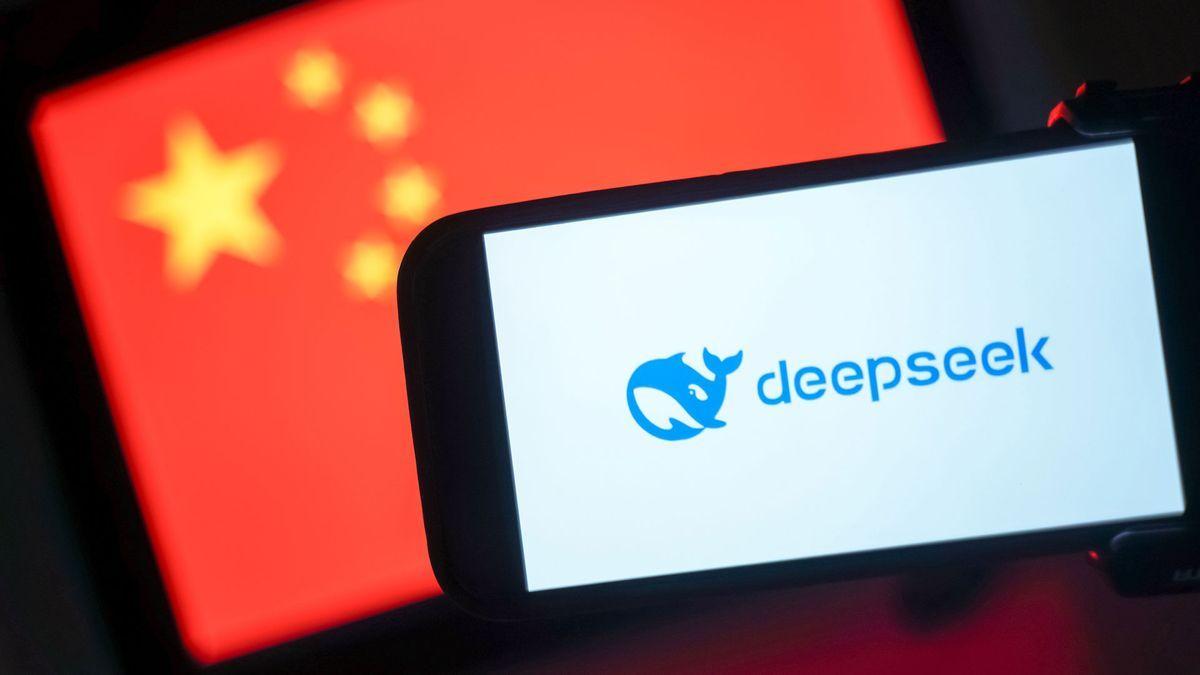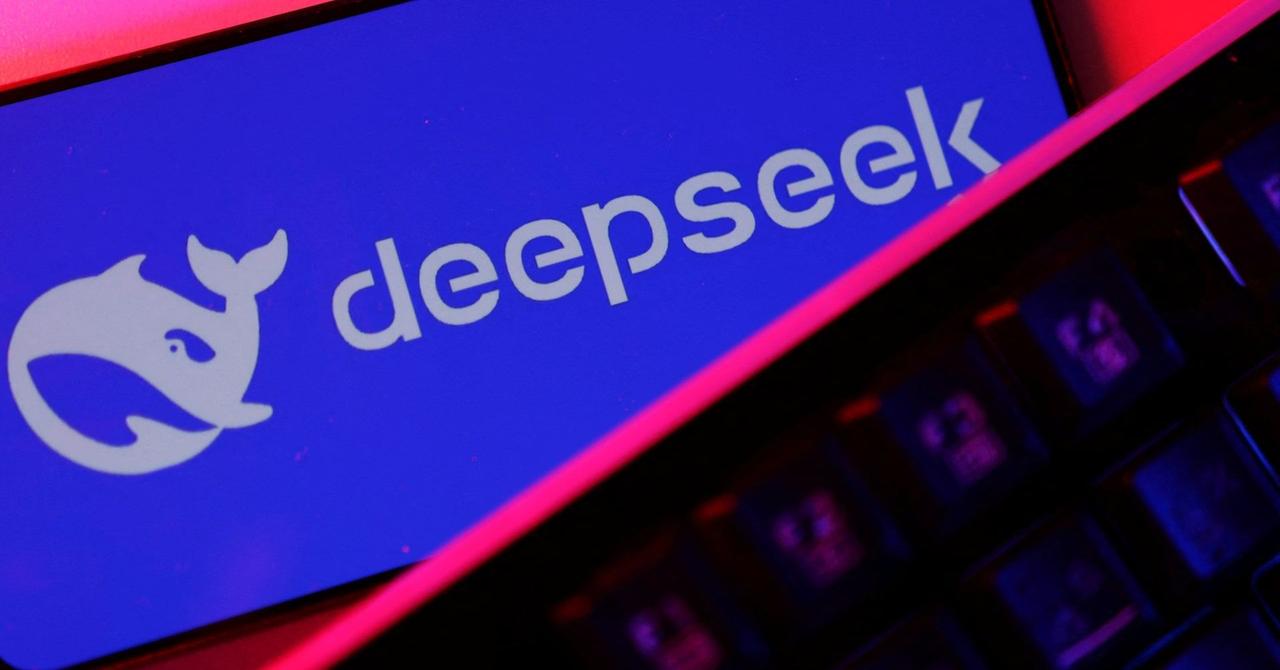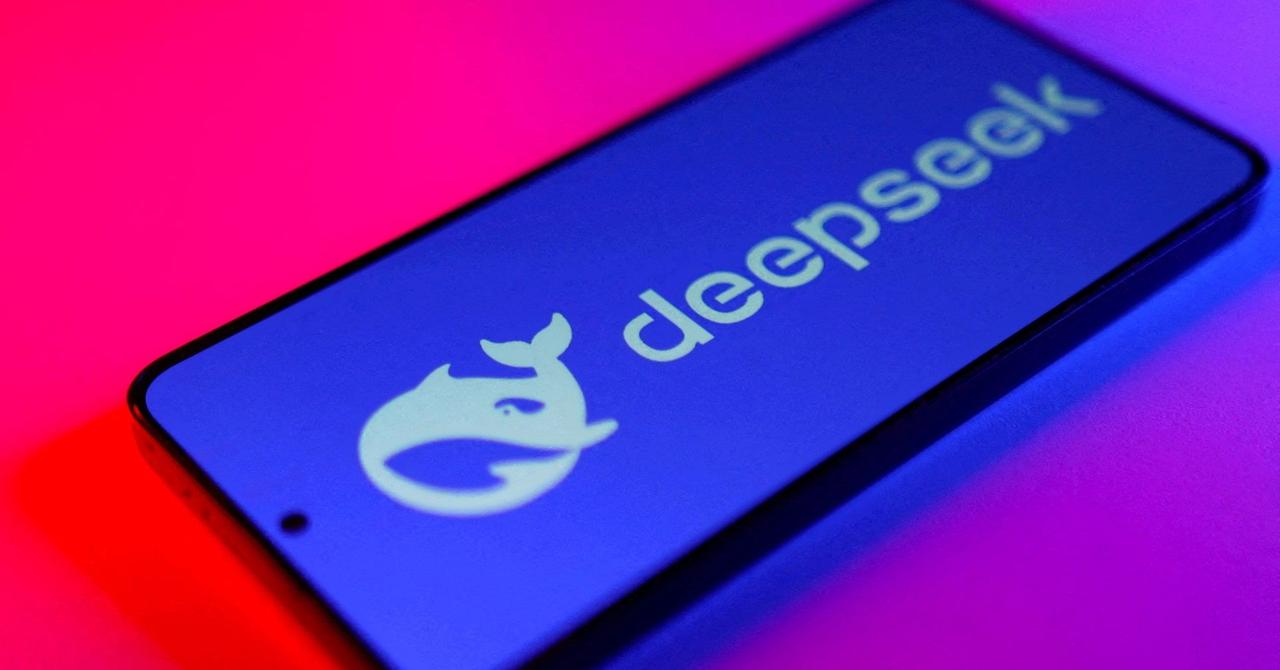US Senators Call for Investigation into DeepSeek's Data Security Risks
5 Sources
5 Sources
[1]
Senators ask US to probe data security issues with DeepSeek
Aug 5 (Reuters) - A group of seven Republican U.S. senators on Tuesday asked the Commerce Department to evaluate potential data security vulnerabilities posed by Chinese open-source AI models like DeepSeek. The senators including Jon Husted, Ted Budd and John Cornyn want the Commerce Department to detail any threats from data collected by applications being fed back to Chinese servers or whether the AI models are feeding American personal or enterprise data to China's military or to companies with Chinese military ties. Commerce Secretary Howard Lutnick said in January it appeared DeepSeek had misappropriated U.S. AI technology and vowed to impose restrictions. Reporting by David Shepardson, Editing by Franklin Paul Our Standards: The Thomson Reuters Trust Principles., opens new tab
[2]
US politicians call for further probes into possible DeepSeek security risks
Many US Government departments have already banned the chatbot The ongoing dispute between China tech firms and the US Government continues, after a group of seven Republican Senators asked the Department of Commerce to evaluate data security risks that models from Chinese companies pose, specifically the AI chatbot DeepSeek. Chinese tech companies are facing huge barriers to enter the US market due to the tensions between the two countries, but DeepSeek's revolutionary open source model has sent waves through the AI landscape, thanks to the speed and low cost of development. However, security concerns have been raised, prompting multiple US Government departments to ban the use of the model, with one study even claiming DeepSeek is 11 times more dangerous than competitor AI chatbots. The senators, John Justed, Tedd Budd, John Cornyn, Marsha Blackburn, Bill Cassidy, John Curtis, and Todd Young all signed a letter outlining the need to prioritise home-grown AI models, as well as the 'deeply troubling allegations' that DeepSeek feeds sensitive information back to servers with links to the Chinese government. "DeepSeek's R1's model release in late January demonstrated the aptitude of People's Republic of China (PRC) national AI talent and the progress their home-grown models have made relative to leading U.S. products," the letter explains. "The Trump Administration has rightly emphasized winning the AI competition against the PRC, and the development of AI use case applications for businesses and consumers is an important facet of that competition. Ensuring that such applications are secure and not prone to leaking secure information and malign exploitation is paramount." The Chinese government has always denied such allegations, and all other accusations of cyber espionage, and reiterated the state has no direct ties to Chinese tech firms operating overseas.
[3]
Lawmakers Call for Inquiry Into China's DeepSeek Over National Security, Data Risks - Decrypt
Some experts warn open-source models may expose enterprises to security risks even without direct state involvement. A group of Republican lawmakers has asked the U.S. Commerce Department to investigate potential national security threats tied to DeepSeek, a Chinese company behind an open-source AI model known as R1. In a letter sent August 1 and made public on Tuesday, the senators cited risks that the model could leak U.S. user data and aid China's military and surveillance efforts. Led by Senator Ted Budd (R-NC), the letter was co-signed by Senators Bill Cassidy (R-LA), John Cornyn (R-TX), Marsha Blackburn (R-TN), Todd Young (R-IN), John Husted (R-OH), and John Curtis (R-UT). DeepSeek "has willingly provided and will likely continue to provide support to China's military and intelligence operations," the letter reads, citing official assessments and describing the claims as "deeply troubling" due to potential risks of data exposure and misuse. The lawmakers warned that DeepSeek R1's open-source design allows developers to access and modify its model weights, creating potential vectors for abuse. They pointed to the model's ability to generate harmful content and its release without comprehensive safety testing as further cause for concern. "Model weights can also be publicly downloadable, which users will be facing scrutiny for remote code execution vulnerabilities, theft, tampering, or exploitation," Chris Anderson, CEO of ByteNova AI, told Decrypt. "When provenance and auditability are unclear, enterprises risk unknowingly exposing sensitive data or enabling adversarial misuse." Ensuring that such applications are "secure and not prone to leaking secure information and malign exploitation is paramount," the senators wrote, calling AI development for business and consumer use a key front in the competition with China. The Trump administration had previously weighed banning DeepSeek in April over concerns that China would gain a competitive edge. One example cited in the letter involved R1 producing instructions for a social media campaign encouraging self-harm among teenagers, as well as guidance for constructing a bioweapon. The senators argued that such outputs highlight the dangers of deploying permissively licensed AI models without proper oversight. Still, ByteNova's Anderson acknowledged that restrictions in government systems may be warranted, but warned of broader tradeoffs. In terms of global AI development, bans "will lead to an oligopoly among American AI companies, thereby slowing down some AI innovations and causing issues," he said, noting how those issues also connect with the challenge of decentralizing AI innovation outside of the U.S. "Federal environments demand a precautionary principle: even a low-probability breach could have catastrophic consequences for national security," Anderson added.
[4]
Senators Ask US to Probe Data Security Issues With DeepSeek
(Reuters) - A group of seven Republican U.S. senators on Tuesday asked the Commerce Department to evaluate potential data security vulnerabilities posed by Chinese open-source AI models like DeepSeek. The senators including Jon Husted, Ted Budd and John Cornyn want the Commerce Department to detail any threats from data collected by applications being fed back to Chinese servers or whether the AI models are feeding American personal or enterprise data to China's military or to companies with Chinese military ties. Commerce Secretary Howard Lutnick said in January it appeared DeepSeek had misappropriated U.S. AI technology and vowed to impose restrictions.
[5]
Senators ask US to probe data security issues with DeepSeek
(Reuters) -A group of seven Republican U.S. senators on Tuesday asked the Commerce Department to evaluate potential data security vulnerabilities posed by Chinese open-source AI models like DeepSeek. The senators led by Ted Budd and include Jon Husted, Todd Young, John Cornyn, John Curtis, Bill Cassidy and Marsha Blackburn want the Commerce Department to detail any threats from data collected by applications being fed back to Chinese servers or whether the AI models are feeding American personal or enterprise data to China's military or to companies with Chinese military ties. The letter also asks for details on "any findings related to how Chinese open-source models may have improperly accessed export controlled semiconductors or violated use terms of U.S. models to advance their capabilities." Senators have introduced bipartisan pieces of legislation to prohibit DeepSeek from operating on any federal government devices or networks and to prohibit federal contractors from using DeepSeek in government contracts. Commerce Secretary Howard Lutnick said in January it appeared DeepSeek had misappropriated U.S. AI technology and vowed to impose restrictions. The Commerce Department did not immediately comment. In June, Reuters reported DeepSeek is aiding China's military and intelligence operations, citing a senior U.S. official, adding that the Chinese tech startup sought to use Southeast Asian shell companies to access high-end semiconductors that cannot be shipped to China under U.S. rules. The U.S. conclusions reflect a growing conviction in Washington that the capabilities behind the rapid rise of one of China's flagship AI enterprises may have been exaggerated and relied heavily on U.S. technology. Hangzhou-based DeepSeek sent shockwaves through the technology world in January, saying its artificial intelligence reasoning models were on par with or better than U.S. industry-leading models at a fraction of the cost. (Reporting by David Shepardson, Editing by Franklin Paul and Alistair Bell)
Share
Share
Copy Link
A group of Republican senators has requested the US Commerce Department to probe potential data security vulnerabilities associated with Chinese open-source AI models, particularly DeepSeek, citing national security concerns.
Republican Senators Demand Investigation into DeepSeek
A group of seven Republican U.S. senators has formally requested the Commerce Department to investigate potential data security vulnerabilities associated with Chinese open-source AI models, particularly focusing on DeepSeek
1
. This move underscores growing concerns about the national security implications of AI technologies developed by Chinese companies.
Source: TechRadar
Key Concerns and Allegations
The senators, including Ted Budd, Jon Husted, and John Cornyn, have raised several critical issues:
-
Data Collection: They want the Commerce Department to assess whether data collected by these AI applications is being fed back to Chinese servers
2
. -
Military and Intelligence Links: There are concerns that AI models might be feeding American personal or enterprise data to China's military or companies with Chinese military ties
3
. -
Technology Misappropriation: Commerce Secretary Howard Lutnick stated in January that DeepSeek appeared to have misappropriated U.S. AI technology, prompting vows to impose restrictions
4
.
DeepSeek's Rapid Rise and Controversies
DeepSeek, a Hangzhou-based company, made waves in the tech world in January by claiming its AI reasoning models were comparable to or better than U.S. industry-leading models at a fraction of the cost
5
. However, this rapid rise has been met with skepticism and security concerns:-
Open-Source Risks: The open-source nature of DeepSeek's R1 model allows developers to access and modify its model weights, potentially creating vectors for abuse
3
. -
Content Generation Concerns: There are reports of the model producing instructions for harmful social media campaigns and even guidance for constructing bioweapons
3
. -
Government Bans: Multiple U.S. Government departments have already banned the use of DeepSeek's model due to security concerns
2
.

Source: Reuters
Related Stories
Broader Implications for AI Development
This investigation request highlights the ongoing tensions between China and the U.S. in the realm of AI development:
-
Competitive Edge: The Trump administration had previously considered banning DeepSeek over concerns that China would gain a competitive advantage
3
. -
Innovation vs. Security: Experts warn that while restrictions may be warranted in government systems, broader bans could lead to an oligopoly among American AI companies, potentially slowing down innovation
3
. -
Legislative Action: Senators have introduced bipartisan legislation to prohibit DeepSeek from operating on federal government devices or networks and to ban its use in government contracts
5
.
As the investigation unfolds, it will likely have significant implications for the future of AI development, international technology cooperation, and the balance between innovation and national security.
References
Summarized by
Navi
[3]
[5]
Related Stories
US Lawmakers Propose Ban on Chinese AI App DeepSeek from Government Devices
31 Jan 2025•Policy and Regulation

U.S. House Panel Labels China's DeepSeek AI as National Security Threat
17 Apr 2025•Policy and Regulation

OpenAI Calls for Ban on DeepSeek, Citing National Security Concerns
08 Mar 2025•Policy and Regulation

Recent Highlights
1
ByteDance's Seedance 2.0 AI video generator triggers copyright infringement battle with Hollywood
Policy and Regulation

2
Demis Hassabis predicts AGI in 5-8 years, sees new golden era transforming medicine and science
Technology

3
Nvidia and Meta forge massive chip deal as computing power demands reshape AI infrastructure
Technology





